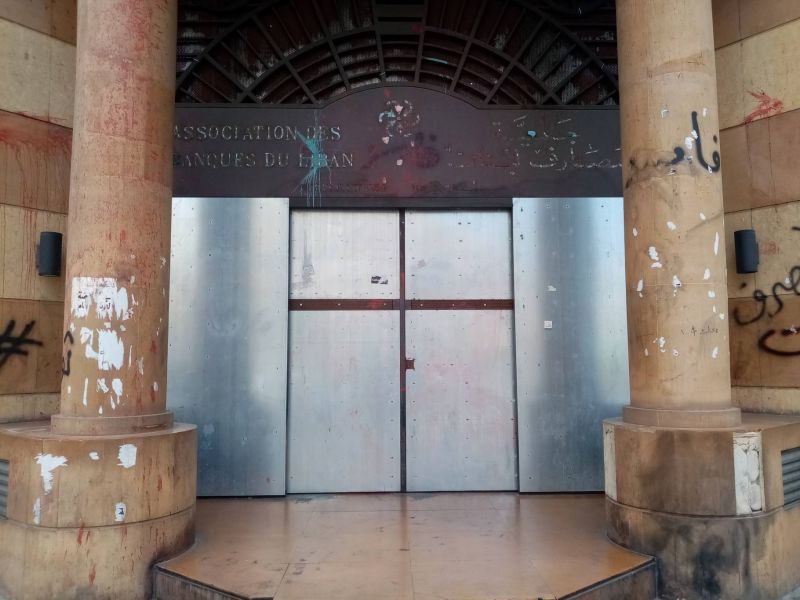
The former headquarters of the Association of Banks in Lebanon, in Beirut. (Credit: Magaly Abboud/L'Orient-Le Jour)
The Lebanese banking sector will be on strike starting Tuesday and lasting until further notice, the Association of Banks in Lebanon (ABL) announced Monday evening in a statement following a meeting of its general assembly.
The decision comes in response to a judgment issued last week by the Court of Cassation against Fransabank.
The court ruled on a technicality that favored depositors Ayad al-Gharabaoui Ibrahim and his wife, Hanane Maroun al-Hajj Ibrahim, in their legal dispute with Fransabank. The case involves a few tens of thousands of dollars but has been highly publicized since last winter. The lawyers' collective Mouttahidoun ("United") is advocating on behalf of the Ibrahims.
This is not the first time that this case has pushed the ABL to strike. Banks closed their doors for two days in March 2022, when the first decision was made by an enforcement judge against Fransabank in the same case.
"This new strike could have been announced last week, but some of the ABL members were not convinced," an anonymous banking source, not authorized to speak to the press, told L'Orient-Le Jour. "Discussions took place and a sufficiently large number of banks finally decided to support it."
ABL clarified that only ATMs will remain operational during the strike.
A 'very serious precedent'
For more than a year, the Ibrahims have been asking Fransabank to return their foreign currency funds in cash dollars, i.e. at their real value.
Fransabank — which, like all other banking establishments in Lebanon, has illegally restricted depositors' access to their foreign currency accounts since the beginning of Lebanon's economic crisis — decided to close the accounts of the two plaintiffs and return their funds in the form of a bank check.
Due to these restrictions, bank checks cannot be cashed without incurring a significant loss in value through the Lebanese banking system.
After several months of proceedings, the Court of Cassation ruled in favor of the depositors on a procedural point, overturning a decision of the Court of Appeals, which had suspended a judge's order to seal the bank's assets until the dispute could be ruled on.
A second banking source, also speaking on condition of anonymity told L'Orient-Le Jour that the Court of Cassation's ruling "sided with the depositors" and "sets a very serious precedent for the banking sector."
"Fransabank can gain time, but that is all. And now that this judgment in Cassation has become part of the jurisprudence, a snowball effect is to be feared on the procedures launched against banks in Lebanon as well as abroad," the source added.
In its statement Monday evening, the ABL called for the adoption of a law establishing formal capital controls before the banks will consider reopening.
Such a bill was approved in January by the joint parliamentary committees, but has still not been voted on in Parliament. Critics of the bill say it is too bank-friendly, even though some more problematic provisions were removed by the committees.
The banking restrictions, combined with the depreciation of the Lebanese lira, imposed a de facto loss of value on many depositors. While many of these depositors went to court, only a few have been successful. So far, all successful lawsuits were filed in foreign courts.